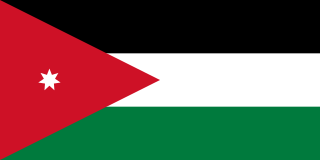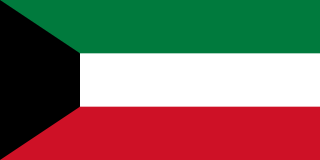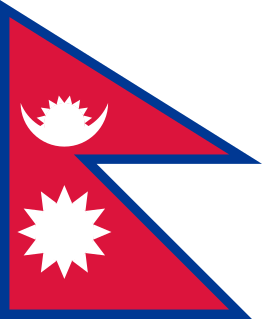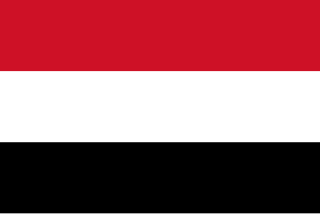 W
WCorruption in Afghanistan is a widespread and growing problem in Afghan society. Transparency International's 2017 Corruption Perception Index ranks the country 177th place out of 180 countries.
 W
WCorruption in Azerbaijan is considered high and occurs at all levels of government. In Transparency International's 2020 Corruption Perception Index Azerbaijan was ranked 129th worst among 180 evaluated countries, compared to 45 for Georgia 60 for Armenia. In the Azerbaijani laundromat money-laundering scheme, $2.9 billion was paid to foreign politicians and Azerbaijani elites by companies linked to Azerbaijani ruler Ilham Aliyev, government ministries, and the International Bank of Azerbaijan between 2012 and 2014. Azerbaijan is a member of Group of States Against Corruption (GRECO) and OECD's Anti-Corruption Network.
 W
WCorruption in Bangladesh has been a continuing problem. According to all major ranking institutions, Bangladesh routinely finds itself among the most corrupt countries in the world.
 W
WExamples of areas where Cambodians encounter corrupt practices in their everyday lives include obtaining medical services, dealing with alleged traffic violations, and pursuing fair court verdicts. Companies are urged to be aware when dealing with extensive red tape when obtaining licenses and permits, especially construction related permits, and that the demand for and supply of bribes are commonplace in this process. The 2010 Anti-Corruption Law provides no protection to whistleblowers, and whistleblowers can be jailed for up to 6 months if they report corruption that cannot be proven.
 W
WCorruption is pervasive at all levels of government in Iraq. In 2021, President Barham Salih said that $150 billion of oil money had been smuggled out of Iraq in corrupt deals since the 2003 invasion.
 W
WThere is evidence that corruption is a legitimate problem in Israeli politics and many investigations have taken place into allegations of influence peddling and bribery.
 W
WCorruption in Jordan is a social and economic issue.
 W
WCorruption in Kuwait is a problem resulting in political tensions in society. Transparency International's 2017 Corruption Perception Index ranks the country 85th place out of 180 countries.
 W
WKyrgyzstan is ranked as the 135th least corrupt country in the 2017 Corruption Perceptions Index, and despite having a strong legal framework, there still exists a huge gulf in implementation of the law. Kyrgyzstan’s rampant corruption which penetrates all levels of society, including the presidency, eventually caused the Tulip Revolution in 2005, overthrowing Askar Akayev, and the 2010 Kyrgyzstani revolution, ousting Kurmanbek Bakiyev from office.
 W
WCorruption in Myanmar is an extremely serious problem. Owing to failures in regulation and enforcement, corruption flourishes in every sector of government and business. Many foreign businesspeople consider corruption "a serious barrier to investment and trade in Myanmar." A U.N. survey in May 2014 concluded that corruption is the greatest hindrance for business in Myanmar.
 W
WCorruption in Nepal is widespread and extends to every sector from the government to the judiciary, police, health services, and education. Nepal ranks at 117 in the Corruption Perceptions Index.
 W
WThe 2017–19 Saudi Arabian purge was the mass arrest of a number of prominent Saudi Arabian princes, government ministers, and business people in Saudi Arabia on 4 November 2017 and the following few weeks after the creation of an anti-corruption committee led by Crown Prince Mohammed bin Salman.
 W
WCorruption in South Korea is moderate compared to most countries in the Asia-Pacific and the broader international community. Transparency International's 2019 Corruption Perception Index ranks the country 39th place out of 180 countries.
 W
WPetty corruption remains a problem in Sri Lanka, and weak whistleblower protections have negative impacts on citizen's willingness to stand up against corruption. Despite some recent institutional reforms by the government in order to fight corruption, whistleblower protections need to be improved.
 W
WCorruption in Tajikistan is a widespread phenomenon that is found in all spheres of Tajik society. The situation is essentially similar to that in the other former Soviet republics of Central Asia. Reliable specifics about corruption can be difficult to come by, however, as can hard information about the effectiveness of supposed anti-corruption initiatives.
 W
WCorruption in Turkmenistan is considered by many independent sources as a serious problem. The country is near the bottom of several annual indices that measure corruption, including 'The Wall Street Journal''s Index of Economic Freedom. Transparency International's 2017 Corruption Perception Index ranks the country 167th place out of 180 countries.
 W
WOverall, corruption in Vietnam is characterised by a weak legal infrastructure, financial unpredictability, and conflicting and negative bureaucratic decision-making. Surveys reveal that petty corruption has decreased significantly throughout the country, while high-level corruption has increased. Corruption is considered an obstacle for doing business in Vietnam, and the use of facilitation payments are widespread when dealing with frontline civil servants. Corruption has moved up the political agenda in Vietnam, and the legal framework for tackling corruption is now better developed.
 W
WCorruption in Yemen is a highly serious problem. Yemen is the most corrupt country in the Gulf region. It is also the poorest country in the Middle East, "with an exceptionally high birth rate, acute rates of child malnutrition and rapidly dwindling reserves of oil and water." In Yemen, according to Chatham House, "corruption, poverty and inequality are systemic"; in the words of the Carnegie Endowment for International Peace, corrupt activity is "so entrenched and pervasive" that many citizens feel powerless.